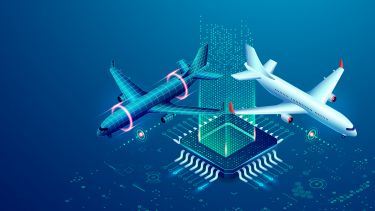Digital twinning
Digital twinning is an Interest Group support by the Centre for Machine Intelligence.

Introduction
Digital twinning is a strategically important and rapidly growing area of scientific and technological innovation, driven by worldwide interest from governments, researchers, and commercial innovators. Scientifically, the field is at the intersection of AI, data science, software design, systems engineering, and complexity and behavioural sciences. The result is digital twins that synchronise real-world observations with digital representations to achieve a particular purpose.
Research areas
- The representation of real-world complexity
- AI, computer vision and machine learning
- Digital twin (DT) architectures including systems thinking
- Internet of things (IoT) and cyber-physical infrastructure
- Creating shared human-twin and/or robot-twin intelligence
- Building DTs that can be scaled
- Agentic digital twins & and use of agents more widely
- Knowledge graphs, ontologies & information management
Aims of the interest group
- To act as a focus for those interested in digital twins
- Share best practice for use of digital twinning across science and engineering.
- Maintain and enhance collaborations, both within the University and with external partners, aligned to this research area.
Contacts
Lead:
David Wagg (david.wagg@sheffield.ac.uk)
Co-leads:
Lyudmila Mihaylova (l.s.mihaylova@sheffield.ac.uk)
Jonathan Eyre (j.eyre@sheffield.ac.uk)
Join this interest group
Sign up to this interest group using our online form.
